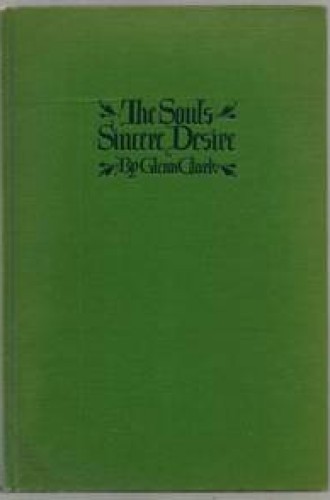Living with selfhood
I was 13, give or take a few months. The lack of specificity means that the dating of the thing itself has long since gotten lost in the total misery of it. With what felt at the time like a malevolent abruptness, I had been wrenched out of the timelessness of childhood and dumped into the disharmony and disjuncture of having a “self” or an “I” that I didn’t want in the first place and that, by its very ubiquity, now separated me, in varying degrees of interruption, from the unity of things as I had always known them.
It’s called growing up, of course, and some people manage to do it easily. I didn’t. I was frantic. I had a self! How in this world was I supposed to live with it? And what in this world was I supposed to do with it?
And then my Presbyterian pastor surreptitiously slipped me a book, The Soul’s Sincere Desire, by Glenn Clark. Within three pages, I knew! I had a soul, something that I had previously been unaware of; and what was happening to me was the borning of what I had come into life to live out. It was a consolation beyond all saying, but it also was instruction. The ache of my fledgling soul was supposed to be there. The ache was my soul’s consuming desire to know that from which it had come and to which it would rejoice to return.
I read the book six times that year, always surreptitiously. I hid in the bathroom, sitting in the bathtub night after night until the water was freezing around me. But I knew . . . I knew . . . and for better or worse, my life of prayer was born and first instructed there in that bathtub and within the pages of that book.





